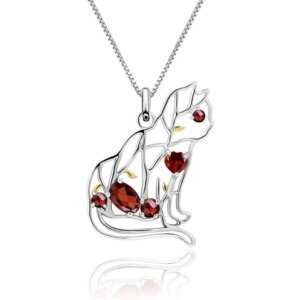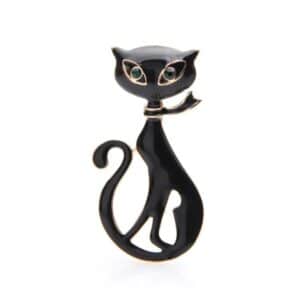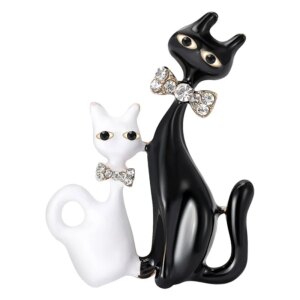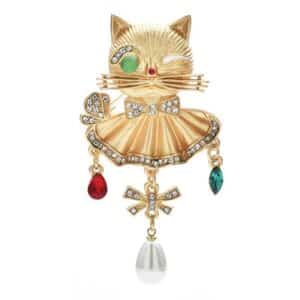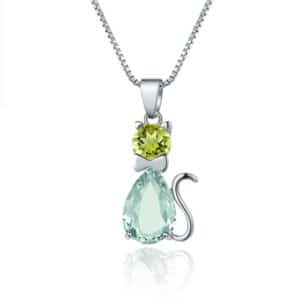At Cat Karma Creations, we understand that cats butt smells can be a sign of various health issues, from anal gland problems to skin infections. This article will explore the common causes, symptoms, and treatments for a smelly cat rear end. By following these tips, you can ensure your feline friend stays healthy and fresh-smelling. Discover how to identify and manage these issues, and learn the importance of regular vet visits and proper grooming. If you have any questions or need assistance, feel free to contact us or visit our online boutique.
Common Causes of Cats Butt Smells
Cat Anal Gland Issues
Cat anal gland issues are a common cause of a smelly rear end. These glands, located near the cat’s anus, can become blocked or infected, leading to a foul smell. Symptoms include scooting, discomfort, and a noticeable odor. If left untreated, these issues can worsen and cause more significant health problems.
To manage cat anal gland issues, regular vet check-ups are essential. Your vet can manually express the glands if necessary and prescribe antibiotics if an infection is present. In severe cases, surgery might be required. Preventing these issues involves maintaining a proper diet and ensuring your cat stays hydrated. If you need any advice on cat care or our jewelry, you can always reach us at (800) 343-1604 or info@catkarmacreations.com.
Cat Skin Infections
Cat skin infections can also contribute to a bad smell, particularly around the rear end. Symptoms include redness, itching, hair loss, and a strong odor. These infections can be caused by bacterial or fungal infections, allergies, or other underlying health issues.
To treat skin infections, your vet may prescribe topical treatments, oral medications, or antifungals. Regular grooming can help prevent these infections by keeping the skin clean and healthy. Using hypoallergenic diets and flea control products can also reduce the risk of skin infections. For more tips on cat care and our unique jewelry, follow us on Facebook or Instagram.
Cat Urinary Tract Infections
Cat urinary tract infections (UTIs) can lead to a bad smell, especially if your cat is frequently urinating or straining to urinate. Symptoms include frequent urination, straining, blood in the urine, and a strong odor. UTIs can be caused by bacterial or viral infections, dehydration, or stress.
Treating a UTI typically involves antibiotics, pain relief, and fluid therapy. Prevention methods include ensuring your cat stays hydrated, maintaining a balanced diet, and reducing stress. Regular vet check-ups can help identify and treat UTIs early, preventing them from causing a bad smell. For more information, visit our Nature Inspired collection for beautiful, cat-themed gifts.
Cat Flea Infestations
Cat flea infestations can cause a bad odor, particularly around the rear end. Symptoms include itching, redness, hair loss, and restlessness. Fleas can cause flea allergy dermatitis, leading to skin irritation and a strong smell.
To manage flea infestations, regular flea control is essential. This includes using flea treatments, maintaining a clean environment, and using flea repellents. Regular grooming can also help identify and remove fleas, reducing the risk of a bad smell. For more tips on flea control and our sterling silver jewelry, visit our Sterling Silver collection.
Cat Diet and Digestion
A cat’s diet and digestion can significantly impact the smell of their rear end. Issues such as cat diarrhea, constipation, and hairball problems can contribute to a bad smell. A balanced diet rich in fiber and essential nutrients can help prevent these issues and keep your cat’s digestive system healthy.
Choosing the right food and supplements is crucial. High-quality cat food that is easy to digest can reduce the risk of digestive issues. Regular vet visits can help identify any dietary concerns and provide guidance on the best food for your cat. For more information on our custom jewelry designs, visit our Shop.
Symptoms and Diagnosis
Identifying the Symptoms
Identifying the symptoms of a smelly rear end is the first step in managing these issues. Common symptoms include a foul smell, scooting, discomfort, redness, itching, and hair loss. Pay attention to any changes in your cat’s behavior, such as increased restlessness or frequent grooming of the affected area.
Regular grooming and observation can help you catch these symptoms early. If you notice any of these signs, it’s important to take action to prevent the issue from worsening. For more tips on cat care, feel free to contact us or visit our online boutique.
When to Seek Veterinary Help
If you notice persistent symptoms or if your cat’s condition worsens, it’s important to seek veterinary help. A vet can diagnose the underlying cause and provide appropriate treatment. Early intervention can prevent more serious health issues and reduce the risk of a bad smell.
Your vet may perform a physical examination, take a medical history, and run diagnostic tests to determine the cause of the smell. This can include blood tests, urine tests, and skin scrapings. For more information on our charitable contributions and unique jewelry, follow us on Facebook or Instagram.
Diagnosis Methods
Diagnosing the cause of a smelly rear end involves several methods. Your vet may perform a physical examination to check for signs of infection, inflammation, or blockages. Blood tests and urine tests can help identify underlying health issues such as infections or metabolic disorders.
Imaging tests, such as X-rays or ultrasounds, may be necessary to visualize the internal structures and identify any abnormalities. Skin scrapings and biopsies can also help diagnose skin infections or other dermatological issues. For more information on our exclusive designs and quality materials, visit our Cat Themed Jewelry collection.
Prevention and Management
Regular Vet Check-ups
Regular vet check-ups are essential for early detection and treatment of health issues that can cause a bad smell. During these visits, your vet can perform a thorough examination and identify any potential problems. They can also provide guidance on preventive measures and recommend appropriate treatments.
Scheduling regular check-ups can help ensure your cat stays healthy and fresh-smelling. Early detection and treatment can prevent minor issues from becoming more serious health problems. For more information on our custom orders and unique designs, visit our Shop.
Proper Grooming
Proper grooming is crucial for maintaining a clean and fresh-smelling cat. Regular brushing can help remove loose hair and prevent hairballs, which can contribute to a bad smell. Bathing your cat with a gentle, cat-safe shampoo can also help reduce odors and keep their skin healthy.
Regular grooming can also help identify any skin issues or infections early. This can include checking for redness, itching, or hair loss. Regular grooming sessions can be a bonding experience for you and your cat, making it a positive part of their routine. For more tips on grooming and our elegant cat brooches, visit our Elegant Cat Brooch collection.
Balanced Diet
Maintaining a balanced diet can help prevent digestive issues and reduce the risk of a smelly rear end. A diet rich in fiber and essential nutrients can keep your cat’s digestive system healthy and reduce the risk of issues such as diarrhea and constipation.
Choosing high-quality cat food that is easy to digest is crucial. Avoid feeding your cat table scraps or foods that can cause digestive upset. Consult with your vet to determine the best diet for your cat’s specific needs. For more information on our yoga-inspired items and custom designs, visit our Cat Pose Yoga Block product page.
Flea Control
Using flea control products and maintaining a clean environment can prevent flea infestations and related odors. Regularly treating your cat with flea preventatives can help keep fleas at bay. This can include topical treatments, oral medications, and flea collars.
In addition to treating your cat, it’s important to maintain a clean living environment. Regularly vacuuming and washing your cat’s bedding can help remove fleas and their eggs. Using flea repellents can also help keep fleas away from your home. For more information on our charitable contributions and unique jewelry, follow us on Facebook or Instagram.
Hydration and Urinary Health
Encouraging hydration and a healthy urinary tract can reduce the risk of urinary tract infections and associated odors. Providing fresh, clean water at all times is essential. Wet food can also help increase your cat’s water intake.
Maintaining a balanced diet and reducing stress can also help prevent UTIs. Regular vet check-ups can help identify and treat any urinary issues early, preventing them from causing a bad smell. For more information on our custom orders and unique designs, visit our Shop.
Treatment Options
Medical Treatments
Medical treatments are often necessary to manage and treat the underlying causes of a smelly rear end. For cat anal gland issues, your vet may manually express the glands and prescribe antibiotics if an infection is present. For skin infections, topical treatments, oral medications, and antifungals may be prescribed.
Treating UTIs typically involves antibiotics, pain relief, and fluid therapy. For flea infestations, flea treatments, environmental control, and antihistamines may be necessary. Your vet can provide guidance on the most appropriate treatment plan for your cat. For more information on our unique jewelry and charitable contributions, visit our website.
Home Remedies
Home remedies can also be effective in managing and preventing a smelly rear end. Regular grooming, including brushing and bathing, can help keep your cat clean and fresh-smelling. Using gentle, cat-safe shampoos can help reduce odors and keep their skin healthy.
Feeding a balanced diet and providing fresh, clean water can help prevent digestive issues and reduce the risk of a bad smell. Regular vet check-ups can help identify and treat any health issues early, preventing them from causing a bad smell. For more tips on cat care and our unique jewelry, follow us on Facebook or Instagram.
Natural Solutions
Natural solutions can also be used to manage and prevent a smelly rear end. For skin infections, using natural remedies such as aloe vera or coconut oil can help soothe the skin and reduce inflammation. For flea infestations, using natural flea repellents such as lavender oil or diatomaceous earth can help keep fleas away.
For digestive issues, adding probiotics to your cat’s diet can help maintain a healthy gut and reduce the risk of a bad smell. Regular exercise and playtime can also help keep your cat’s digestive system healthy and prevent issues such as constipation and diarrhea. For more information on our custom orders and unique designs, visit our Shop.
| Feature | Cat Anal Gland Issues | Cat Skin Infections | Cat Urinary Tract Infections | Cat Flea Infestations |
|---|---|---|---|---|
| Symptoms | Foul smell, scooting, discomfort | Redness, itching, hair loss, odor | Frequent urination, straining, blood in urine | Itching, redness, hair loss, restlessness |
| Causes | Blocked or infected anal sacs | Bacterial or fungal infections, allergies | Bacterial or viral infections, dehydration | Flea bites, flea allergy dermatitis |
| Prevention | Regular vet check-ups, proper diet | Regular grooming, flea control, hypoallergenic diet | Hydration, balanced diet, stress reduction | Flea control, regular cleaning, flea repellents |
| Treatment | Manual expression, antibiotics, surgery | Topical treatments, oral medications, antifungals | Antibiotics, pain relief, fluid therapy | Flea treatments, environmental control, antihistamines |
- Regular vet check-ups are essential for early detection and treatment of health issues that can cause a bad smell.
- Maintaining a balanced diet can help prevent digestive issues and reduce the risk of a smelly rear end.
- Regular grooming, including brushing and bathing, can help keep your cat clean and fresh-smelling.
- Using flea control products and maintaining a clean environment can prevent flea infestations and related odors.
- Identifying and treating skin infections promptly can prevent the development of a bad smell.
- Encouraging hydration and a healthy urinary tract can reduce the risk of urinary tract infections and associated odors.
Popular Quote
"A cat improves the garden wall in sunshine and the hearth in rain." – William Butler Yeats
Statistical Fact
According to the American Veterinary Medical Association (AVMA), approximately 50% of cats will experience a urinary tract infection at some point in their lives. This statistic underscores the importance of regular vet check-ups and maintaining a healthy urinary tract to prevent UTIs and associated odors. (Source: AVMA, 2021)
Three Tips for Managing Cats Butt Smells
- Regular Vet Visits: Schedule regular vet check-ups to catch and treat any health issues early, preventing them from causing a bad smell.
- Proper Grooming: Regularly brush and bathe your cat using gentle, cat-safe products to keep their skin and fur clean and healthy.
- Healthy Diet: Feed your cat a balanced diet rich in fiber and essential nutrients to support their digestive health and reduce the risk of digestive issues.
Popular Questions
What are the common symptoms of a smelly rear end in cats?
Common symptoms include a foul smell, scooting, discomfort, redness, itching, and hair loss. Pay attention to any changes in your cat’s behavior, such as increased restlessness or frequent grooming of the affected area.
How can I prevent flea infestations in my cat?
Regularly treat your cat with flea preventatives, maintain a clean living environment, and use flea repellents. Regular grooming can also help identify and remove fleas early.
What should I do if I suspect my cat has a urinary tract infection?
If you notice symptoms such as frequent urination, straining, blood in the urine, or a strong odor, seek veterinary help immediately. Early diagnosis and treatment can prevent more serious health issues.
How can I manage my cat’s anal gland issues?
Regular vet check-ups are essential for early detection and treatment. Your vet can manually express the glands if necessary and prescribe antibiotics if an infection is present. Maintaining a proper diet and ensuring your cat stays hydrated can also help prevent these issues.
Final Thoughts About Cats Butt Smells
Managing and preventing cats butt smells is crucial for their overall health and well-being. By staying vigilant and following the tips outlined in this article, you can ensure your cat remains happy and fresh-smelling. Regular vet visits and proper care are key to a healthy, odor-free feline. If you have any concerns, don’t hesitate to contact us or visit our online boutique for more information and unique cat-themed jewelry.

